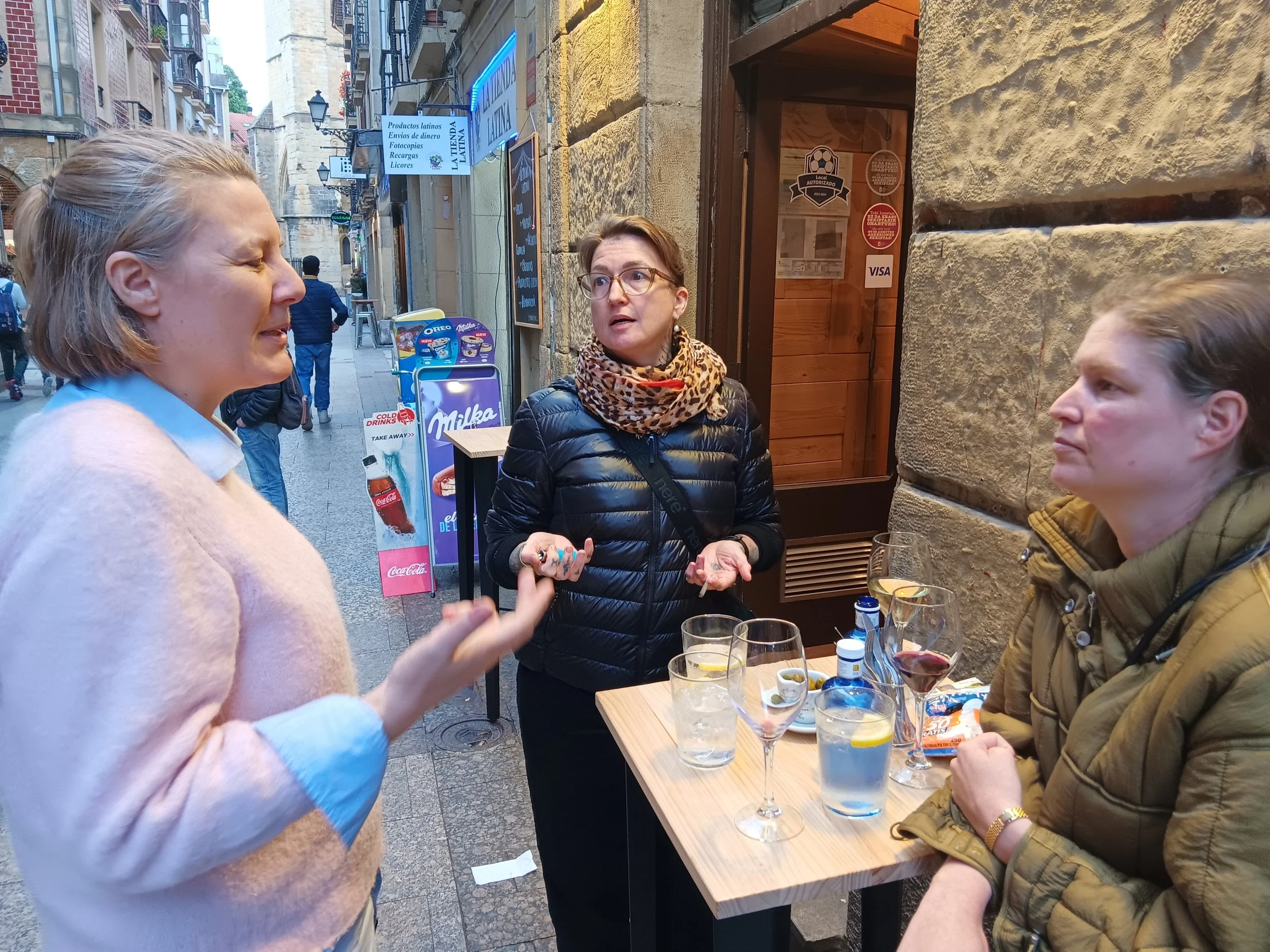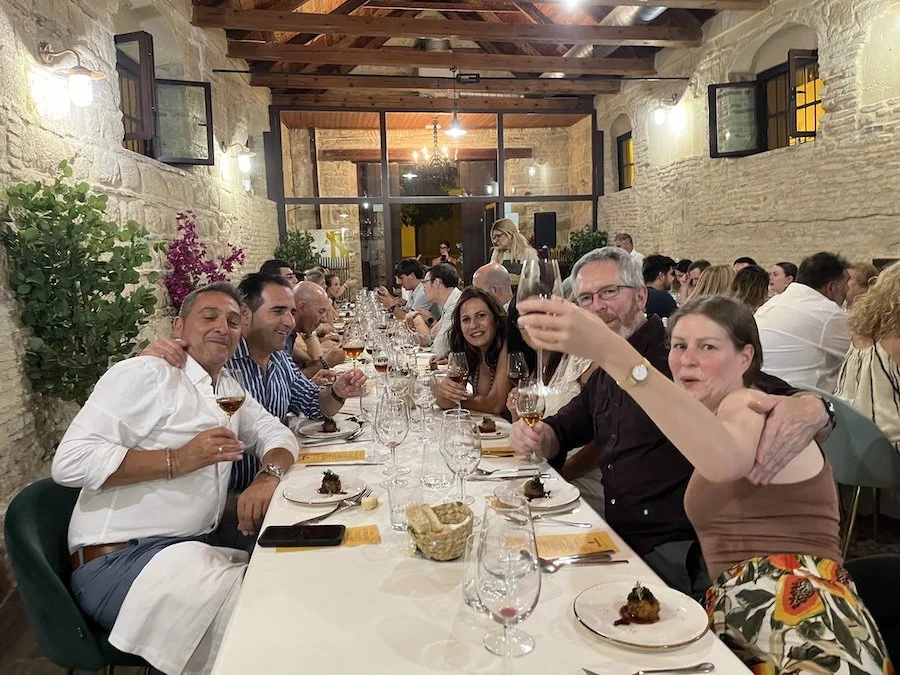“Learn Spanish,” they say.
“So, how’s your Spanish coming along?”
“Are you taking lessons?”
“Which apps are you using?”
Understandably, the advice from the myriad expats who’ve moved to Spain (or France or Italy or Latvia) is to learn the language, ideally before you arrive. ‘Learn Spanish’? Just like that? Sacre bleu.
The sentiment is well intentioned – how arrogant would it be to expect the locals in your new country to wrap themselves around your own tongue? Sure, you can get away with not speaking Spanish if you move to a town on the Costa del Sol, where Brits and American expats abound, but if you’re following this blog you’ll know that in the ‘real’ Spain you won’t be so linguistically cushioned.
I think it’s the wording I have a problem with: ‘learn Spanish’.
This imperative statement needs a temporal qualification. It should at least be rephrased: begin learning Spanish. It’s easy for immigrants who’ve been here for a decade and perhaps are married to a Spaniard to insist that we must learn the language, but here’s the thing: it’s really hard, at least for most of us.
If you’re an academically gifted individual with a love for lessons and face-to-face role playing then you’ll have a terrific advantage. Some American friends of ours are way ahead of us in the language, partly because they take weekly Zoom lessons and reliably finish their homework.
But I also met a pair of British immigrants recently who, having done likewise, with endless lessons and practice, have nowhere near the level of Spanish that Jess and I do and go to water when a waiter asks what they’d like to drink.
In Australia virtually no one speaks Spanish. It’s not something we learn at school, even if we want to. To make it more difficult on us, our decision to move to Spain was a sudden one. We landed here a mere six months after we realised that the NLV was a thing. Those six months were spent on daily Duolingo lessons, a thankless, repetitive course of action that, while tedious, at least gives you the basics. (Yes, I know Duolingo teaches South American Spanish, not Castilian, but trust me, it doesn’t matter a scroot, for reasons I’ll get to.)
Jess and I quickly decided that lessons weren’t for us. Reliving the rigours of school and university among a group of strangers of various scholastic capacity … no thanks. One-on-one Zoom? Ahh, another no. Neither of us has the attention span to commit to anything like that. We’d quickly have the truancy police after us and be out of pocket to boot.
So, back to learning apps like Duolingo. An Aussie mate of mine recounts a story of a medico friend of his, before moving to Spain, studiously completing the entire Spanish Duolingo course. His first phone call to his new employer didn’t go as expected: no one understood a word he was trying to say, and vice versa.
All that said, my own Duolingo streak is approaching 900 days, so it’s not like I’m not making an effort. It doesn’t matter that it’s South American at heart – trust me, any linguistic misunderstanding you’re likely to face won’t be because of a handful of different words or how you pronounce Barcelona. I also completed the Pimsleur audio course, and I’ve gotten quite a lot out of Spanish-teaching YouTube channels.
I’ll note at this point that since we left Australia nearly three years ago, Jess has not undertaken a single one of these learning activities. You’d think, therefore, that I’d be the one taking the lead when it comes to interacting with locals. Nup, Jess is damn near as competent as I am, and in many cases better. While I reckon I can read written Spanish more confidently than she – my vocab and knowledge of sentence structure is approaching ‘fair’ – she has taken to understanding the language simply from context like a pato to agua.
Importantly, there’s an innate nervousness that people experience to wildly varying degrees when trying to communicate in a new language that we need to consider. You know what you want to say. You’ve rehearsed it. Then they say something to you and suddenly all your words hit the ground like someone’s upturned your Scrabble board. That was me, and still is (to lesser and lesser degree with each passing month, thankfully). Jess is less panicky and can more often than not infer from the speaker and the situation what’s going on, successfully respond and progress the conversation accordingly. She has a far greater ability to listen based on context than I do (mind you, that was the case back in Australia too).
It also depends hugely on where in Spain you are; ‘Spanish’ doesn’t begin to cover the gamut of dialects in this country. Furthermore, the opportunities to interact with people in our first city, San Sebastián, were far fewer than they are in Jerez. In San Sebastián, when you’re at a pintxo bar you do a lot of yelling out what you want – “´!PINTXO DE CARILLADAS POR FAVOR!” and that’s about it, whereas here in the south nearly everything is table service and relaxed enough that there’s plenty of time for a conversation, whether you understand it or not. Plus, people here in Jerez are extremely friendly and willing to help when you struggle, while in a tourist town friendliness comes purely out of politeness because they know they’ll never see you again.
We spent three hours at a seven-course degustation and made some new friends. Even with our bad Spanish and their nonexistent English, we had a blast.
If you want to learn Spanish, then lessons, apps and YouTube might just be for you – but perhaps not in the way that you think. I use YouTube retrospectively. If I’m confused about something I’ve heard or read, I look for a clip online that deals with the matter and suddenly the penny drops. Even if I’ve seen the clip before, it makes sense only now that I have a context for it.
By far the most effective teaching device for us has been by taking the toro by the cuernos and throwing ourselves into conversations with waiters and locals, with delivery drivers and hairdressers, with bus drivers and ticket sellers. By asking for six oranges, half a kilo of cherries, a bunch of carrots and a head of garlic. Or four chicken thighs without fish bones (to the amusement of everyone in the butcher shop). You’ll be surprised how assimilating into your new home is less about grammar and vocabulary and more about fitting in.

